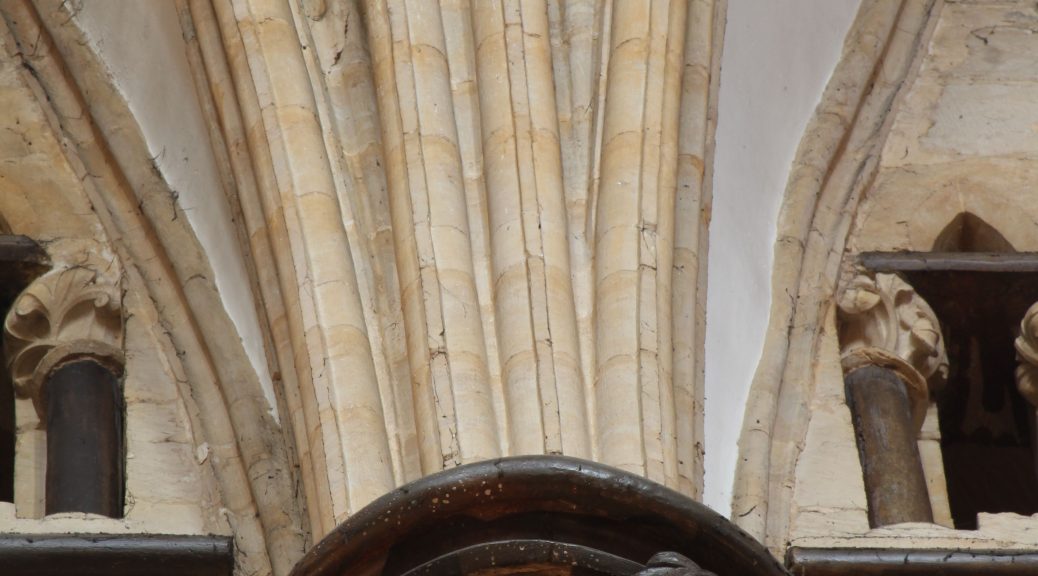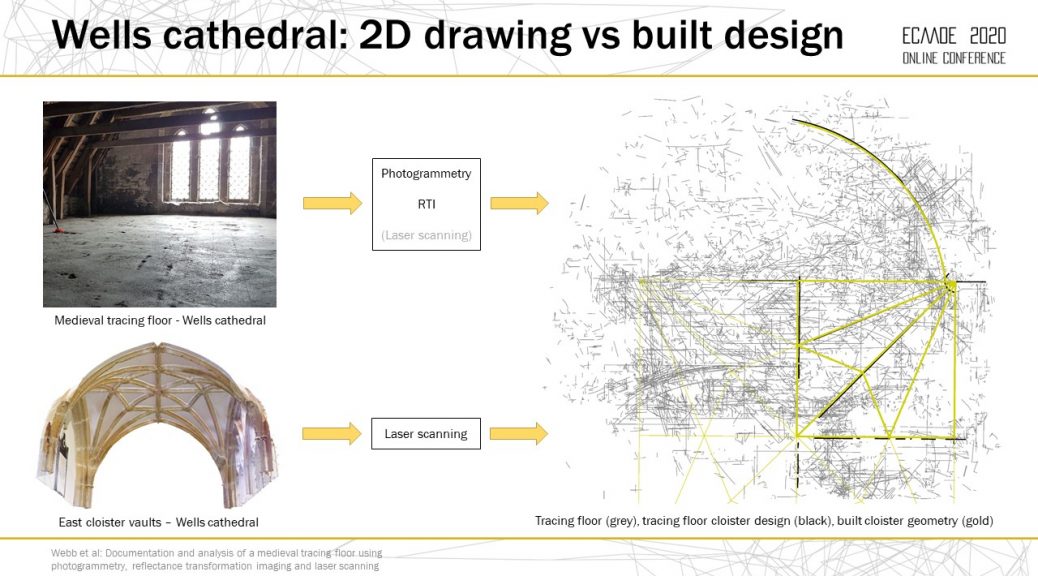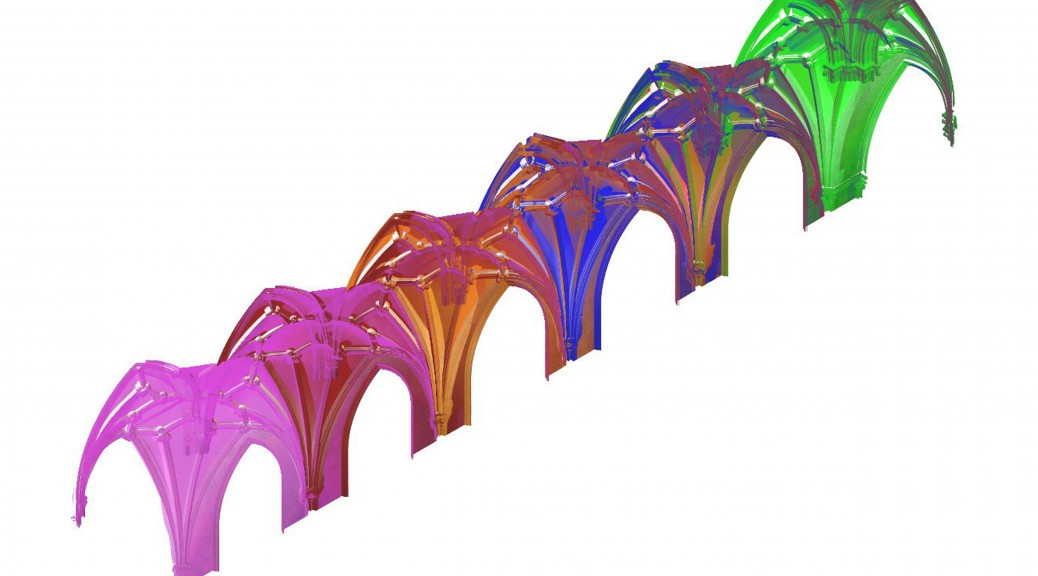One of the most exciting parts of any research project are the unexpected questions which arise along the way. Whilst reviewing our scan data or attempting to reconstruct the underlying design processes of medieval vaults, we often encounter gaps in our knowledge about the architecture of a specific site. This can include issues ranging from technical problems, such as the execution of particular features of a building’s stonework, to structural problems, such as the presence or absence of differential settlement across its individual bays, to historical problems, such as the fine details of its chronology. Though these can often be addressed by reading the extensive list of books and articles which have been written about these buildings, sometimes the published literature can only take you so far. In addition, there are many occasions on which the evidence which we have discovered is ambiguous or unclear, supporting to multiple alternative interpretations of a single vault.
With this in mind we have begun to organise a series of guest reviewer sessions, funded by the Research Development Initiative Fund (RDIF) at the University of Liverpool’s School of the Arts. These involve inviting external experts to come to Liverpool to discuss our research and help us answer many of our questions relating to specific sites. Each session focuses on a particular group of buildings, inviting individuals from a range of academic backgrounds including architectural history, art history, archaeology and structural analysis. So far we have run three sessions, the first focusing on our work on Norton Priory, Gloucester and Lincoln, the second on our studies of Chester, Nantwich and Ely and the third on Pershore and Tewkesbury. All of these were extremely useful and opened up many new avenues of discussion which we have continued to pursue over the following months. Though the COVID-19 outbreak has forced us to curtail our plans, we are intending to organise further sessions digitally once things have settled down.


